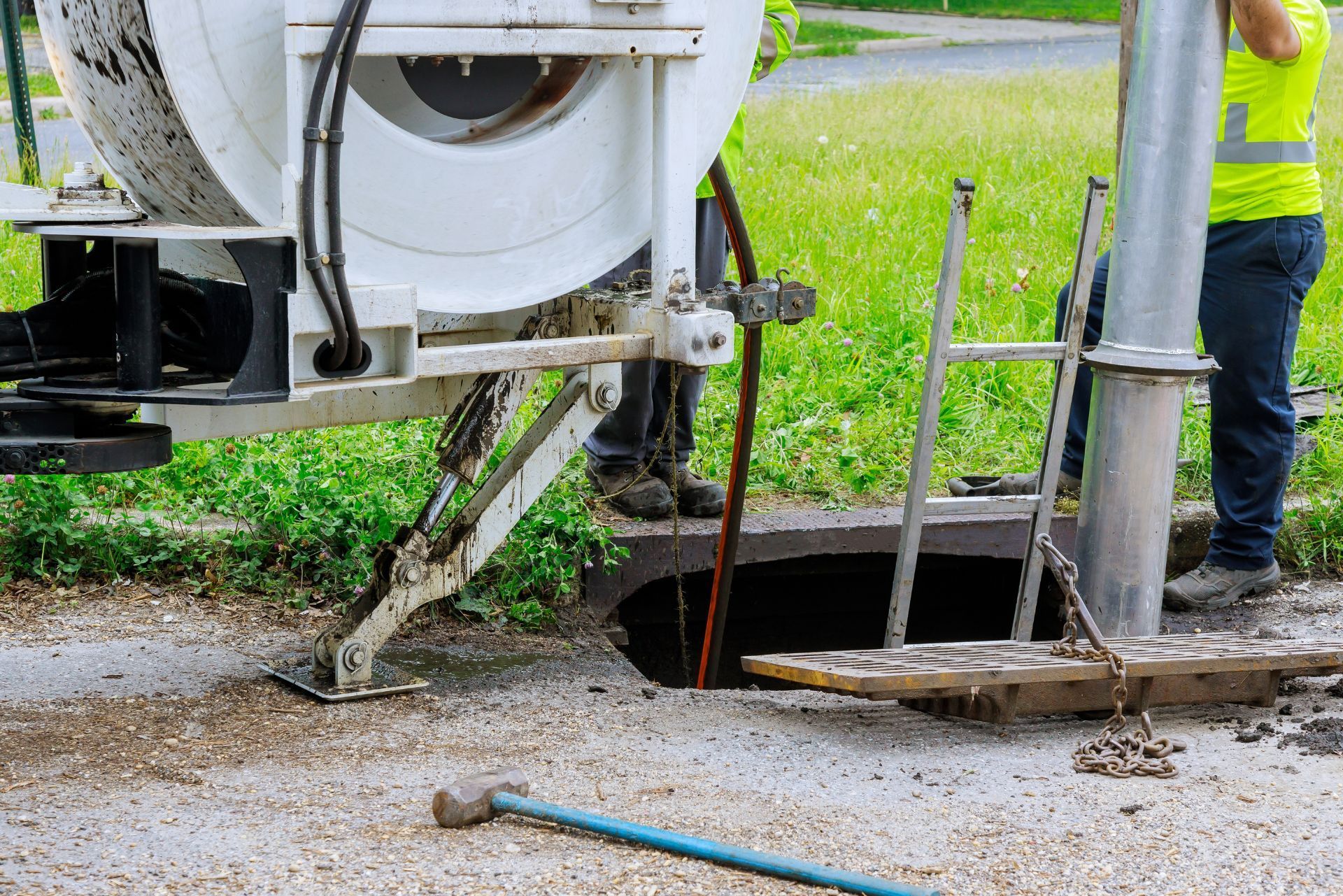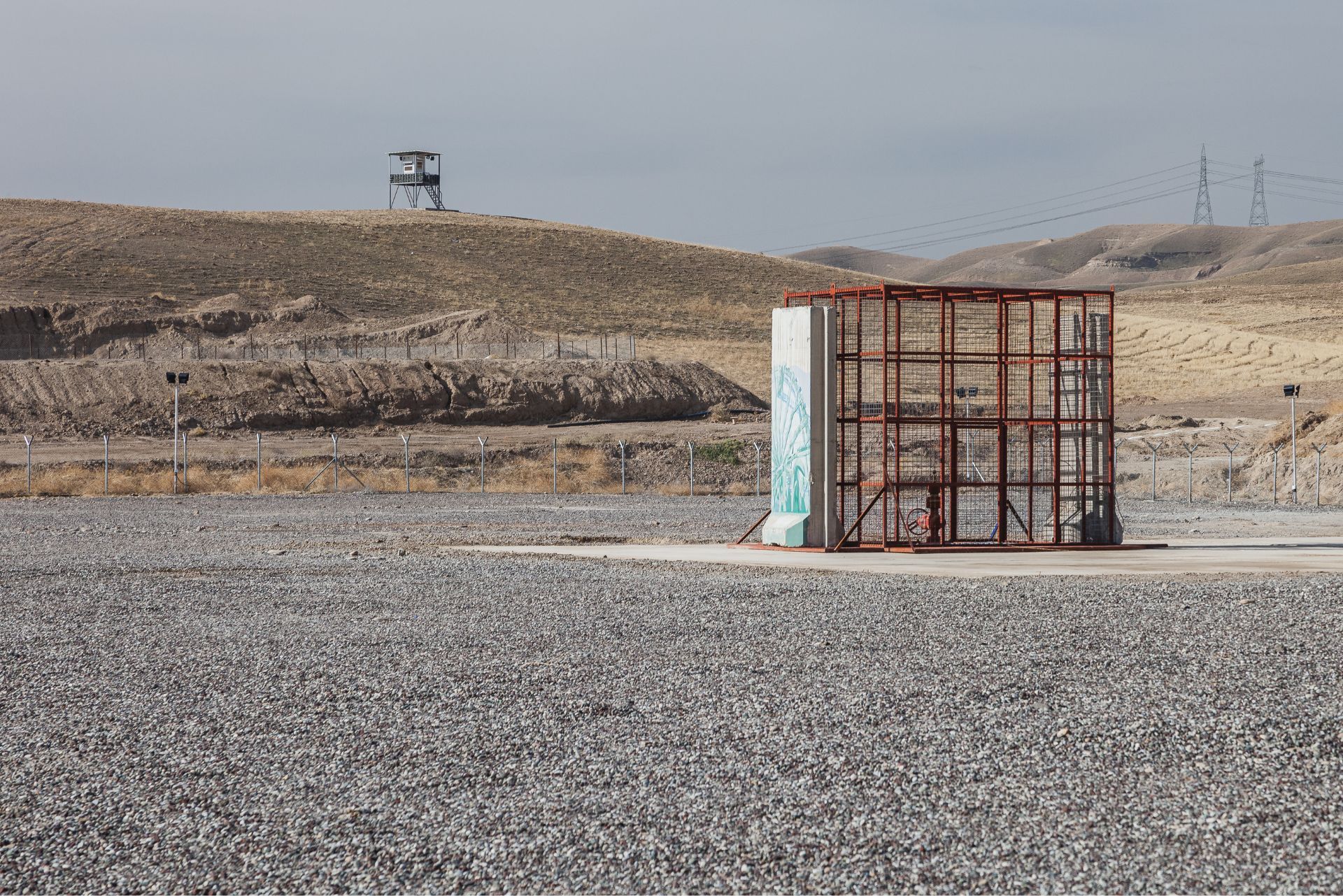Top 3 Recommended Policies

Disposal wells play a critical role in managing waste, especially in industries handling hazardous or industrial byproducts. These wells are engineered to inject waste deep underground, isolating it from groundwater and ecosystems. However, operating disposal wells involves significant risks, from environmental liability to fire hazards, making insurance coverage essential for companies in this sector.
Understanding the nuances of disposal well insurance is crucial for operators, investors, and stakeholders looking to mitigate financial risks while complying with regulatory frameworks. This article explores key aspects of disposal well insurance, market trends, challenges, and strategies to navigate this complex insurance landscape.
For those interested in the broader market context, the Deep-Well Disposal Services Market is projected to grow significantly, highlighting increased demand and the corresponding need for robust insurance solutions.
Why Disposal Well Insurance is Essential
Disposal wells handle substances that, if improperly managed, can cause severe environmental damage. Insurance for these operations protects companies from financial losses arising from accidents, contamination, regulatory fines, and lawsuits. Environmental liability insurance, in particular, is a cornerstone of this coverage, addressing risks related to pollution and long-term environmental impact.
One notable benefit of environmental liability insurance is its positive influence on reducing industrial carbon emissions. A recent study found that the development of such insurance mechanisms encourages companies, especially in industrially developed regions, to adopt greener practices and reduce their carbon footprint. This dual function of insurance—risk mitigation and environmental stewardship—makes it indispensable in disposal well operations.
Environmental Risks and Liability
Disposal wells must comply with stringent environmental regulations to prevent contamination of underground sources of drinking water. Any breach or leak can lead to costly cleanup efforts and legal consequences. Environmental liability insurance helps cover these expenses, providing a financial safety net that supports rapid response and remediation.
Additionally, insurance incentivizes companies to maintain high operational standards. Insurers often require rigorous risk assessments and safety protocols before offering coverage, pushing operators toward best practices that minimize environmental risks. This proactive approach not only protects the environment but also fosters a culture of safety and responsibility within the industry.
Moreover, the complexities of environmental regulations can vary significantly by region, making it crucial for disposal well operators to stay informed and compliant. Insurance providers often offer guidance and resources to help companies navigate these regulations, ensuring that they are not only protected financially but also equipped with the knowledge to operate responsibly. This partnership between insurers and operators can lead to innovative solutions that enhance both operational efficiency and environmental protection, ultimately benefiting communities and ecosystems alike.

Market Trends and Challenges in Disposal Well Insurance
The insurance market for waste and recycling companies, including those operating disposal wells, faces ongoing challenges. Limited capacity and increased claims frequency have made coverage more expensive and harder to obtain. According to industry reports, these challenges stem largely from the rising severity of claims and a scarcity of insurers willing to underwrite high-risk operations.
Kristin Poffenberger, senior vice president at Eureka Recycling, highlights a critical issue: "There’s a gap in what carriers have the capacity to cover and what industry needs are, and that’s also increased premium rates for everybody." This gap means companies must be more strategic in their insurance purchases, often facing higher premiums and more restrictive terms.
Moreover, 2022 saw a record number of fire incidents at waste and recycling facilities in the U.S. and Canada, with 368 fires reported. These incidents have further strained insurance markets, as fire risks translate into higher claims and premiums. Danny Edwards, an agent with BancFirst Insurance Services, notes, "If you don’t have a narrative around fire and risk in general, it’s going to be really challenging to get insured."
These dynamics underscore the importance of comprehensive risk management and transparent communication with insurers to secure adequate coverage. Companies are increasingly investing in advanced safety technologies and training programs to mitigate risks and demonstrate their commitment to safety, which can positively influence their insurance negotiations. For instance, the adoption of real-time monitoring systems for hazardous materials and fire detection can significantly reduce the likelihood of catastrophic incidents, thus appealing to insurers who are wary of high-risk operations.
Additionally, the regulatory landscape surrounding waste management and disposal wells is evolving, with stricter compliance requirements being introduced. This shift not only impacts operational costs but also influences insurance underwriting criteria. Insurers are now more inclined to assess a company's compliance history and environmental practices before offering coverage. As a result, waste and recycling companies are urged to maintain meticulous records and proactively engage in sustainability initiatives, which can enhance their risk profile and potentially lead to more favorable insurance terms.
For a deeper dive into the current insurance market challenges,
Risk Strategies’ 2024 report offers valuable insights.
Key Components of Disposal Well Insurance Policies
Disposal well insurance policies typically encompass several coverage areas tailored to the unique risks of underground waste injection. Understanding these components helps operators ensure they are adequately protected.
Environmental Liability Coverage
This coverage protects against claims related to pollution, contamination, and environmental damage resulting from disposal well operations. It often covers cleanup costs, third-party bodily injury, and property damage claims. Given the potential for long-term environmental impact, this coverage is critical for compliance and financial security. Furthermore, operators must be aware that environmental regulations can vary significantly by region, which may influence the extent and specifics of coverage needed. Engaging with legal and environmental experts can provide insights into local laws and help tailor policies that meet both regulatory requirements and operational needs.
Property and Equipment Insurance
Disposal wells rely on complex infrastructure, including pumps, injection equipment, and monitoring systems. Property insurance covers damage or loss to these assets from events like fire, storms, or equipment failure, ensuring operational continuity. Additionally, these policies may also include coverage for business personal property, such as tools and spare parts that are essential for maintenance and repair. Given the high costs associated with replacing specialized equipment, having a comprehensive property insurance policy can significantly mitigate financial risks and help operators respond swiftly to unexpected incidents.
Business Interruption Insurance
In the event of a covered loss that disrupts operations, business interruption insurance helps cover lost income and ongoing expenses. This is particularly important for disposal well operators who face costly downtime and regulatory scrutiny after incidents. The financial implications can be profound, as operators may also need to account for regulatory fines or legal fees during periods of inactivity. By incorporating a robust business interruption policy, operators can better navigate the complexities of operational halts, ensuring they have the necessary resources to recover and resume normal operations as quickly as possible.
Workers’ Compensation and Liability
Given the hazardous nature of disposal well operations, workers’ compensation and general liability insurance protect against employee injuries and third-party claims, respectively. These coverages are essential for maintaining workforce safety and legal compliance. Moreover, operators should consider additional training and safety programs to further reduce risks associated with worker injuries. Investing in safety measures not only fosters a safer working environment but can also lead to lower insurance premiums over time as insurers recognize proactive risk management efforts. Furthermore, having a comprehensive risk management strategy can enhance the overall resilience of the operation against unforeseen challenges.
Strategies to Navigate Disposal Well Insurance Challenges
Given the tightening insurance market and increasing risks, disposal well operators must adopt proactive strategies to secure and optimize their insurance coverage.
Comprehensive Risk Management
Implementing rigorous risk management protocols is vital. This includes regular safety audits, fire prevention measures, and environmental monitoring. Demonstrating a strong risk management culture can improve insurer confidence and potentially reduce premiums. Furthermore, operators should consider investing in advanced technologies such as real-time monitoring systems and predictive analytics. These tools can enhance the ability to foresee potential issues before they escalate, thereby reinforcing the operator's commitment to safety and efficiency.
Transparent Communication with Insurers
Building a clear narrative around risk mitigation efforts is crucial. As Danny Edwards emphasized, insurers seek detailed information on fire risks and other hazards. Providing thorough documentation and evidence of safety measures can facilitate underwriting and coverage terms. Additionally, maintaining an open line of communication with insurers can foster a collaborative relationship. Regular updates on operational changes, safety performance, and any incidents can help insurers understand the operator's evolving risk landscape, ultimately leading to more favorable coverage options.
Leveraging Environmental Liability Insurance to Drive Sustainability
Operators can use environmental liability insurance not only as a risk transfer tool but also as an incentive to adopt sustainable practices. Insurers increasingly recognize the value of conserving natural capital and may offer incentives for using renewable materials and recycling waste products, as highlighted in the 2025 global insurance outlook by Deloitte Insights. Moreover, operators who actively engage in sustainability initiatives may find themselves better positioned in the marketplace, attracting clients who prioritize environmental responsibility. This dual benefit of risk management and market differentiation can lead to a more robust business model.
Planning for Cost and Schedule Risks
Disposal well projects, especially those involving nuclear or hazardous waste, face significant cost and schedule risks. Studies show that cost overruns can be substantial, with a risk of exceeding 202% of the budget in some cases. Incorporating these risks into insurance planning and project management helps avoid financial surprises. Operators should also consider developing comprehensive contingency plans that outline potential scenarios and their associated costs. By preparing for various outcomes, including regulatory changes or unexpected technical challenges, operators can better navigate the complexities of disposal well projects and maintain financial stability.

The Future of Disposal Well Insurance
As the disposal well market grows—projected to nearly double in value by 2030—the insurance landscape will continue evolving. Insurers are increasingly factoring environmental impact and sustainability into their underwriting decisions, pushing operators toward greener and safer practices. This shift is not merely a trend but a necessary response to the mounting pressures from regulatory bodies and public sentiment, which demand greater accountability from industries that utilize disposal wells.
The integration of environmental liability insurance into broader corporate responsibility frameworks is likely to deepen, with insurers playing a key role in driving down industrial carbon emissions and promoting natural capital conservation. As companies face stricter regulations and potential liabilities associated with environmental damage, the demand for tailored insurance products that address these risks will surge. This evolution will encourage innovative insurance solutions that not only protect against financial loss but also incentivize sustainable practices, such as the adoption of advanced technologies for waste management and disposal.
Companies that invest in robust risk management, transparent insurer relationships, and sustainable operations will be best positioned to navigate the challenges ahead and capitalize on market opportunities. By fostering partnerships with insurers that prioritize environmental stewardship, businesses can enhance their reputations while simultaneously reducing their overall risk exposure. Furthermore, as the industry evolves, educational initiatives aimed at raising awareness about the importance of sustainable disposal practices will become increasingly vital. These initiatives can empower operators with the knowledge needed to implement effective strategies that align with both regulatory requirements and market expectations.
For more detailed market projections, the Deep-Well Disposal Services Market report offers comprehensive data and analysis. This resource not only highlights current trends but also forecasts future developments, providing stakeholders with the insights necessary to make informed decisions in a rapidly changing landscape.
Conclusion
Disposal well insurance is a complex but essential aspect of managing the risks associated with underground waste injection. With environmental liabilities, fire hazards, and regulatory demands, operators must secure comprehensive coverage tailored to their unique exposures.
Market challenges, including limited insurer capacity and rising claims, make proactive risk management and transparent communication vital. Meanwhile, environmental liability insurance not only mitigates risks but also encourages sustainable industrial practices, aligning financial protection with ecological responsibility.
As the industry grows and evolves, staying informed about market trends, coverage options, and risk mitigation strategies will empower disposal well operators to protect their investments and contribute to a safer, cleaner environment.
Contact Us
Phone
Location
9595 Six Pines Dr, Suite 8210, The Woodlands, TX 77380

